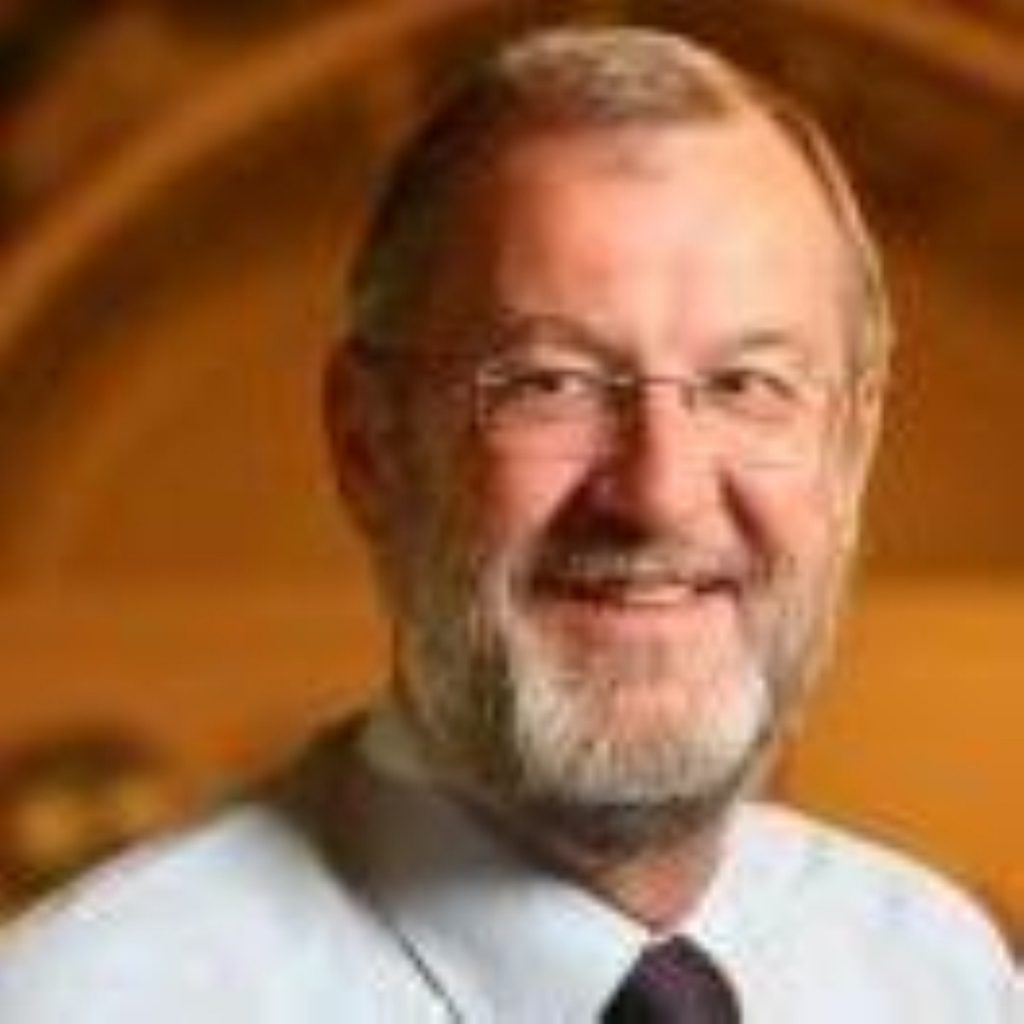Interview: John Battle
By Alex Stevenson
It says a lot about John Battle that, after 22 years in parliament, he’s still prepared to describe his constituency as a “work in progress”.
Leeds West extends from the inner city – “terraced houses with the washing still hung out” – through some tower blocks and housing estates to the semi-detached suburbs and one or two farms.
It’s a place where “people work hard and have low aspirations”, he explains. They’re more likely to be cleaning the banks than running them. And there are less people going to university in his constituency than any other in the country.


“My problem is to raise the aspirations of the people to focus on skills and training so their children’s children are equipped to join in the world of the future,” he says.
This “mixed picture” might not sound like a glowing testimonial to his hard work.
In fact it’s a reflection of his unceasing energy. You wouldn’t have thought anyone could fit so many sentences into half-an-hour. Talking with him is like having a conversation with a whirlwind.
It’s a fundamental aspect of his politics that there’s always more to be done, more improvements to be made. His comments about the two great “monuments” of his constituency – the 12th century Cistercian Kirkstall abbey and, close by, Armley prison – are hugely telling.
“My tension is. the relationship between the reflection of the abbey and the maelstrom of the place called the prison where we dump everybody that we don’t know what to do with. That’s a reflection of the pressures of modern society,” he muses.
Battle’s restlessness may explain why he ended up in politics rather than as a monk, his original vocation. He went to university only after training to be a priest and joining a monastery. The politics was there – he was a community worker in Kirby while training for the cloth – but it was as a councillor, at the tender age of 23 in Leeds, that he came into his own. It was “the most formative time of my life”, he remembers.
Being elected as the Labour MP for Leeds West in 1987 was a feat in itself. In a forgettable election for Labour – Battle was one of just six gains for the opposition party – he achieved the biggest swing, a full six per cent. “I arrived and thought, ‘where the hell are all the others?'” He got on with the job of “mitigating” against Thatcher, regardless.
First in opposition, then on the backbenches of New Labour, Battle has learned some hard truths about the realities of driving change in politics. He reflects on two of his ten-minute rule bills from 1988 – on healthcare in prisons and a national minimum wage – both of which have subsequently become government policy.
These “lodestones of political focus”, as he puts it, eventually made it through. That’s surely worthy of congratulation.
“Yes, but how long does it take?” he ripostes.
“My answer is, to get change from the bottom upwards [takes] ten years at the local level, but 30 years at the national level. It takes 30 years to change the psyche, the political and the managerial culture of anything.
“How can you shorten that 30-year cycle? For the people I represent, that’s a generation written off. I don’t think we’ve made too much progress in a short time and I think that’s the problem.”
Nowadays, Battle reflects, this urgency is heightened by the accelerating effects of globalisation. As Einstein used to put it (this is from his two years as science minister, clearly) the biggest problem is connecting the little to the big. For Battle, this means how to connect the global to the local. “Well, the conflicts and tensions of the whole world are in my neighbourhood.”
What on earth does he mean by this? He tells a story about a Pakistani and an Indian who live on the same street in his constituency to illustrate the point. For years they passed the time shouting abuse at each other over the “running sore” of Kashmir.
There’s a gleam in Battle’s eye as he recounts what happened next. “A couple of Decembers ago they’re coming down the street one with an arm around the other. So I leap into the middle of the road and say, ‘what the hell’s going on here? Is it an act of God? Have you intermarried? What’s brought you two together? It can’t be the Leeds United football results!’
“And he says, ‘John, I’ve just seen a truck going into India into Pakistan for the earthquake. It took blankets and tents into my village. So we’ve decided to call the war off in our street. We’ve realised this is where our kids now live, will grow up.’ I said I’m going to wheel you round the neighbourhood, to show we can tackle the issues.”
That’s the sort of small victory which gets Battle excited these days. He’s found a way of relating the biggest events of our time to his constituency – and knows that, while he can’t make it perfect, he can do his bit to improve the situation.
“My effort is to change the neighbourhood I live in,” he reflects. Unfinished business it may be, even after 22 years in Westminster. But that helps explains why – as he dashes off to his next appointment – he’s still in a hurry.












